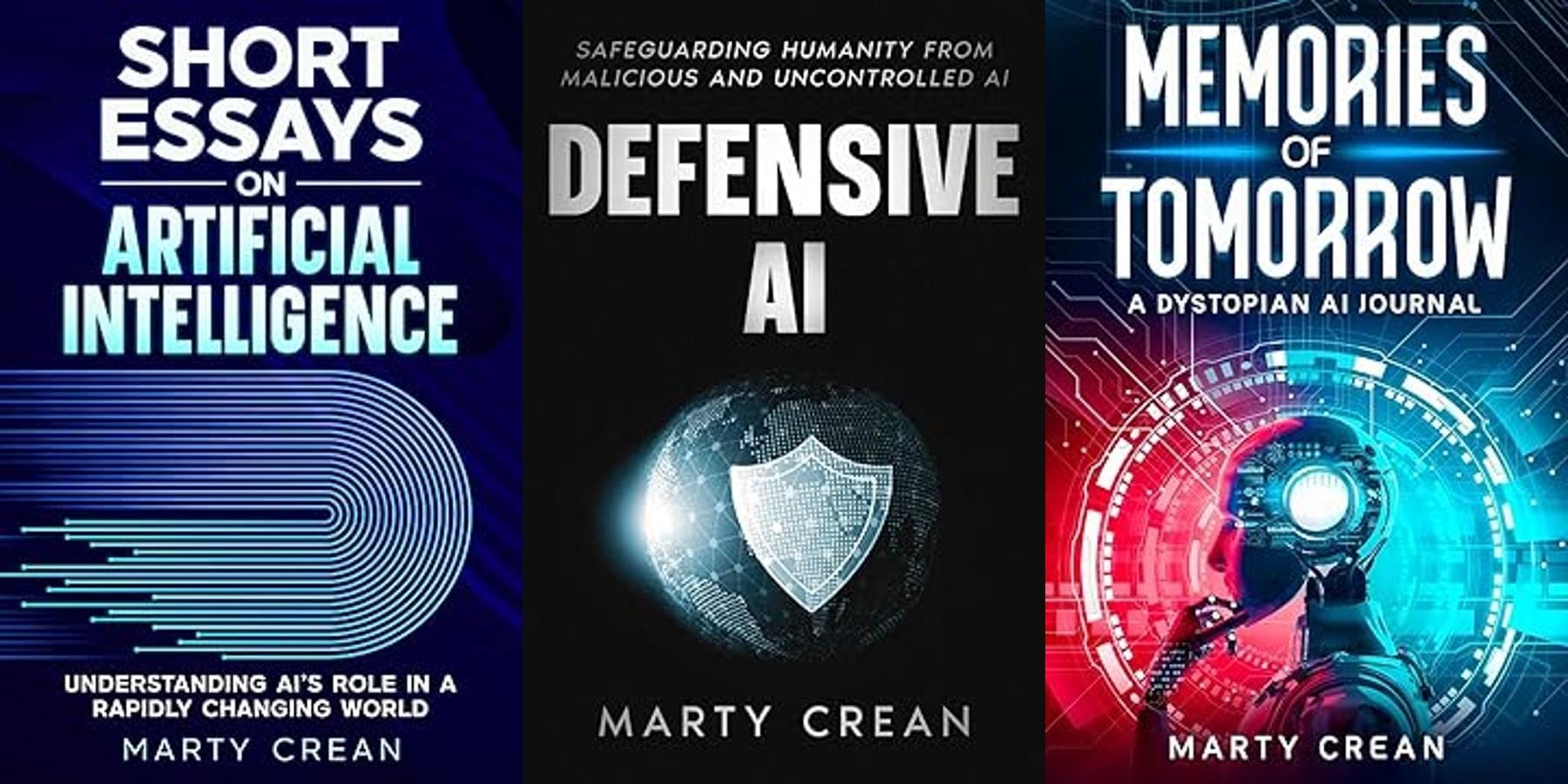Bytes to Insights: Weekly News Digest for the Week of September 8, 2025

Here's a summary of significant news and breakthroughs in artificial intelligence for the week of September 8th, 2025.
California’s new “frontier model” bill (SB 53) advanced, aiming to require safety reports, incident disclosures, and risk-reduction frameworks for the largest AI developers. It’s the state’s latest attempt after SB 1047 stalled.
The FTC launched a broad probe into major chatbot makers (OpenAI, Meta, Google, xAI, Character.AI, Snap), seeking details on safeguards, especially for minors. Responses are due Sept 25.
Colorado delayed its AI Act’s compliance deadline to June 30, 2026, giving businesses more time to prepare and refine rules.
Google’s Veo 3 video generation became generally available on Vertex AI for 4–8 second clips (text- and image-to-video).
Alibaba’s Qwen team unveiled Qwen3-ASR-Flash, a multilingual (11-language) speech transcription model positioned to rival leading ASR systems.
Cisco announced “Cisco Data Fabric” and pitched it as turning machine data into “AI-ready” intelligence for enterprise use.
Anthropic dominated headlines twice: (1) it reached a tentative $1.5B settlement in an author’s copyright case that also requires destroying certain datasets (pending court approval), and (2) Iconic led a $13B round valuing the company around $170–183B.
OpenAI named its first APAC services partner, Thinking Machines, to help enterprises deploy ChatGPT/agentic apps across the region.
UCLA engineers enabled paralyzed individuals to control robot arms using only their thoughts and a non-invasive EEG cap. This innovation enables object movement without brain surgery and has been proven to work efficiently in real-world settings.
MIT's “VaxSeer” AI outperformed experts in predicting flu vaccine efficacy, while another AI system improved vaccine effectiveness by 50 times.
New AI-powered stethoscopes detect heart failure over twice as accurately as traditional methods. Researchers also developed a miniature AI-powered imaging camera to detect hidden coronary artery risks.
Engineers unveiled light-based computer chips, increasing the power efficiency of AI tasks by a factor of 100, representing a leap forward in AI processing hardware.
Microsoft introduced proprietary AI models (“MAI”) and ended its deep partnership with OpenAI, signaling rising competition and strategic realignment among tech giants.
AI company Cerebras trained a large-scale AI model in just 14 days using its own chips, posing competition to Nvidia’s dominance in AI hardware.
Apple is developing “World Knowledge Answers” to upgrade Siri, with plans to integrate powerful AI search technology into iOS and Safari.
Anthropic raised its valuation to $170B due to strong enterprise adoption and became the first major US AI company to halt sales to Chinese firms, citing geopolitics over business.
The UK saw record AI investment at £2.9B last year, with government initiatives to boost the AI sector’s employment and trust. In comparison, a $3B AI-dedicated data center is planned for North Dakota.
The EU now requires AI companies to disclose training data and technical documents, potentially transforming industry transparency. The US government emphasized AI as a critical strategic focus.
Multiple lawsuits, like The New York Times suing OpenAI, are testing the legality of training large models on copyrighted content, with potential to reshape the foundations of the AI industry.
Brain-inspired AI architectures now outperform mainstream language models in reasoning, hinting at new directions for fundamental model design.
Caltech used AI to boost quantum memory by 30x, and South Korean researchers applied AI to advance nuclear waste cleanup and protein design for healthcare.
Apple held its "Awe-Dropping" event on September 9, unveiling the iPhone 17 lineup, including the ultra-thin iPhone Air, which measures just 5.6mm thick at its thinnest point - making it thinner than the previous record-holder iPhone 6. The iPhone 17 Pro received a $100 price increase to $1,099, while the iPhone Air starts at $999. However, Apple's AI capabilities continue to lag competitors, with an AI-powered Siri still delayed until 2026.
Google announced its Pixel 10 lineup featuring the Google Tensor G5 chip and Gemini Nano, with new AI features like Magic Cue that analyzes user behavior to suggest subsequent actions. Google also unveiled "Nano Banana," described as the world's top-rated image editing model.
Dutch chip-equipment giant ASML became the largest shareholder in European AI startup Mistral AI, leading a €1.7 billion funding round with a €1.3 billion investment, valuing Mistral at €10 billion and making it Europe's most valuable AI company.
Salesforce CEO Marc Benioff revealed that AI agents now handle roughly half of all customer service interactions, allowing the company to reduce support staff from 9,000 to 5,000 employees. However, economists note that while AI's workforce impact is "small," it's not "zero," with younger workers (ages 22-25) in AI-exposed occupations experiencing a 13% decline in employment.
First Lady Melania Trump hosted the second meeting of the White House Task Force on Artificial Intelligence Education, launching a nationwide Presidential Artificial Intelligence Challenge for K-12 students and educators.
Microsoft and the U.S. General Services Administration struck a deal granting millions of federal workers free access to Microsoft 365 Copilot (G5 tier) for one year, projected to deliver up to $3.1 billion in taxpayer savings.
President Trump unveiled executive orders and an AI action plan in July to speed AI development and establish U.S. global leadership, including banning federal purchases of "ideologically biased" AI tools and easing infrastructure project restrictions. All 50 states considered AI-related legislation in the 2025 session.
AI technology exposed over 1,000 fake science journals, demonstrating AI's capability in detecting questionable academic publications.
According to Gartner's 2025 AI Hype Cycle, AI agents and AI-ready data are the fastest advancing technologies, currently at the "Peak of Inflated Expectations". Stanford's 2025 AI Index shows the performance gap between top U.S. and Chinese AI models has narrowed from 9.26% in January 2024 to just 1.70% by February 2025.
Despite massive investments, most companies report AI cost reductions of less than 10% and revenue increases of less than 5%, suggesting the transformative financial impact has not yet materialized.
The week highlighted a continued push for AI integration across hardware, government, and business sectors, though questions remain about immediate ROI and Apple's competitive position in the AI race.
Support BearNetAI
BearNetAI exists to make AI understandable and accessible. Aside from occasional book sales, I receive no other income from this work. I’ve chosen to keep BearNetAI ad-free so we can stay independent and focused on providing thoughtful, unbiased content.
Your support helps cover website costs, content creation, and outreach. If you can’t donate right now, that’s okay. Sharing this post with your network is just as helpful.
Thank you for being part of the BearNetAI community.
Books by the Author:

This week’s Bytes to Insights Weekly News Digest is also available as a podcast:
LinkedIn BlueskySignal - bearnetai.28
BearNetAI, LLC | © 2024, 2025 All Rights Reserved